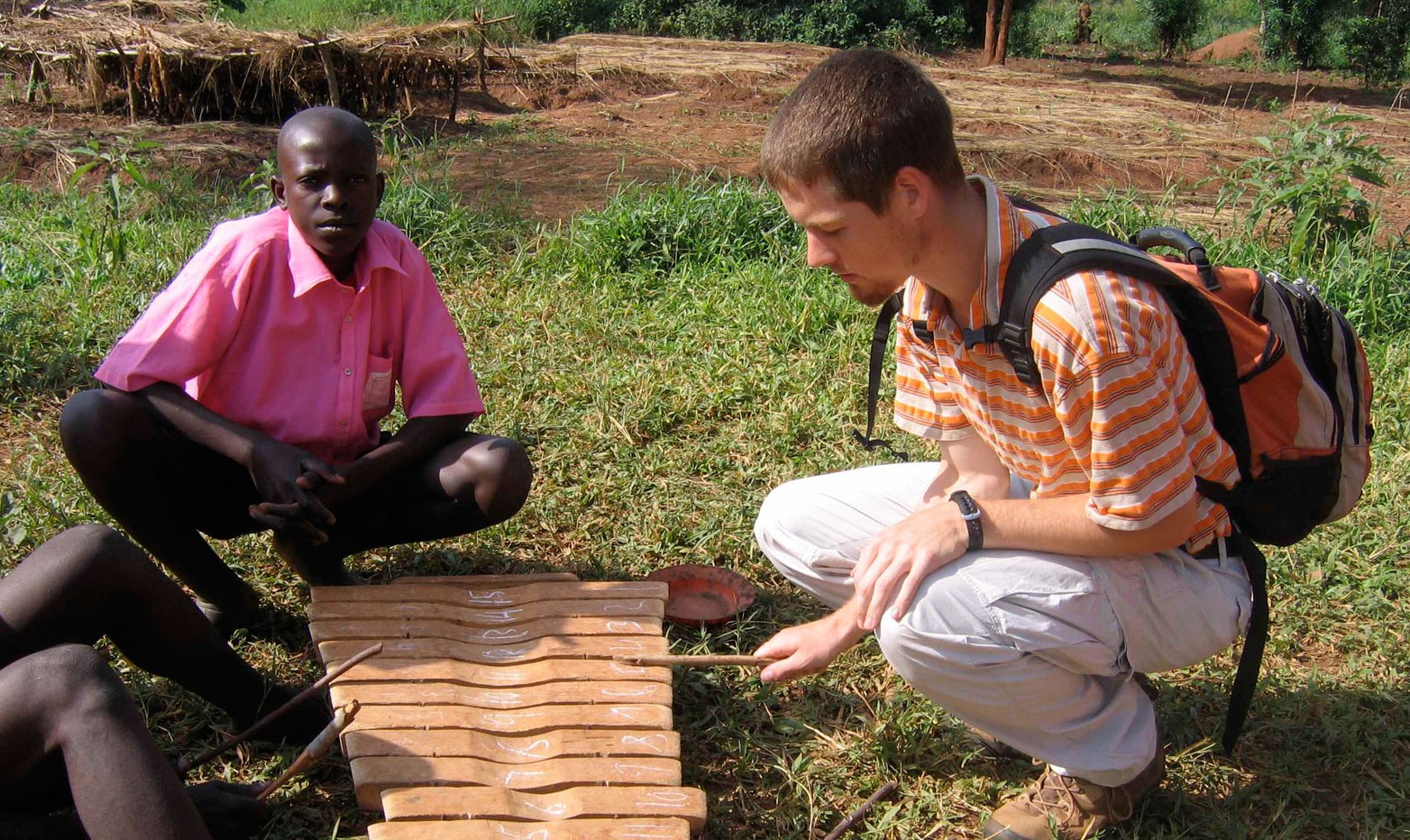
Changing The World One Beehive At A Time
An op-ed piece for the Ames High School newspaper landed Sam Bird in Uganda, where he has taught students how to build beehives.
Bird, a senior in global resource systems, says he wrote the op-ed because all of Iowa is tied to agriculture, “but the average student in Ames didn’t appreciate that connection.”
The letter caught the attention of David Acker, associate dean of academic and global programs in the College of Agriculture and Life Sciences.
Bird says he was originally headed to San Francisco to attend college. That changed when Acker contacted him and explained the global resource systems major at Iowa State.
Students who choose the major focus on an international region of their choice. Before graduating they learn the language and an understanding of the region’s issues.
Bird was one of the first students to sign up for the major. He also was one of the first student peer mentors in the major’s learning community. He says it’s amazing what he’s learned from other students.
“They go to Thailand, Morocco, India, China, all over the world,” Bird says. “It’s what my classmates do during the summer.”
Uganda was Bird’s choice because he’d already spent three weeks there during high school. During that visit he met students younger than he was caring for entire families.
“If you ever see the issues these families have to deal with—it really hits you,” Bird says.
The summer after his first year in college he returned to Uganda with the ISU-Makerere University Uganda Service Learning Program, which is organized by the Center for Sustainable Rural Livelihoods (read more about this partnership on page 31).
Students from both universities worked together to teach English, improve the school garden and formed teams to teach specific skills. Bird’s group decided to teach beekeeping.
The Makerere University students suggested teaching beekeeping because the children could use their basket weaving skills to weave beehives. Also, establishing hives at the school would help teachers continue lessons on beekeeping. And the products, like honey, could be harvested and consumed or sold.
Bird says he didn’t think the students had caught on, until one morning they noticed an extra beehive.
“One student came over and said he had made the beehive,” Bird says. “Little bits of progress, like that beehive, is how to start to make a difference, whether it’s in Uganda or Iowa.”
The message Bird shares with his peers, international students and even United Nations leaders, is that we all have to work together to make the world sustainable. It’s an issue that’s interwoven with agriculture because he says, “we all need to eat.”
Bird participated in the United Nations Commission on Sustainable Development in 2009 and was recently selected as a Udall Scholar. He plans to attend graduate school to study applied economics and its implications for agriculture and economic development in sub-Saharan Africa.



